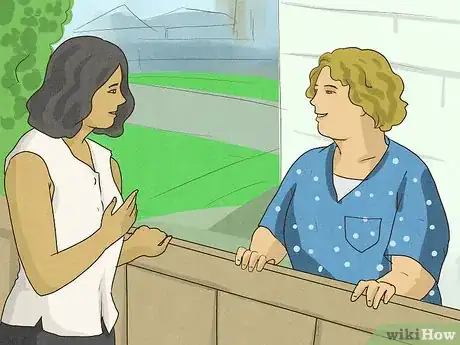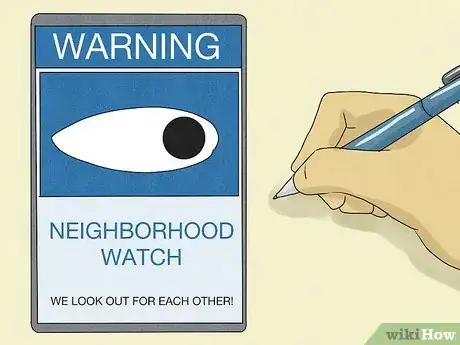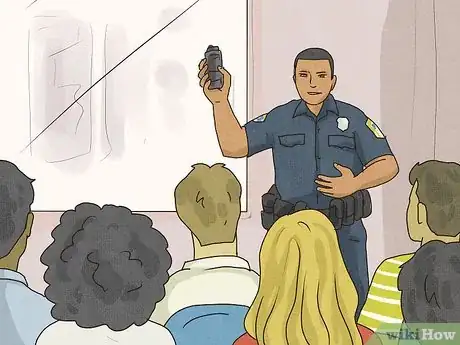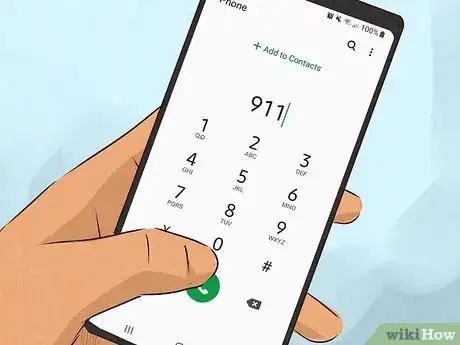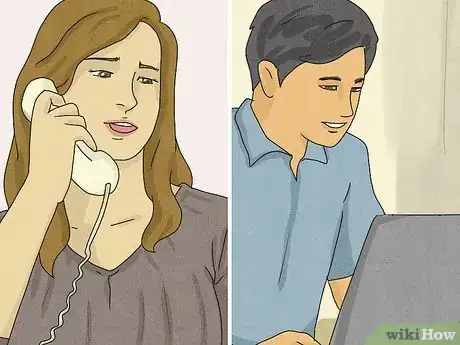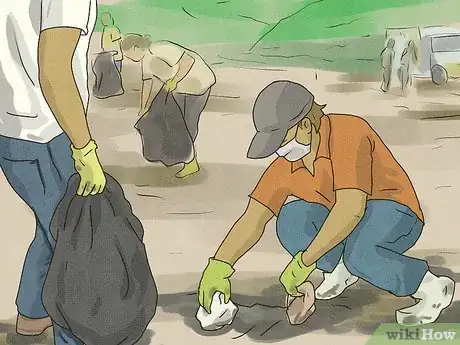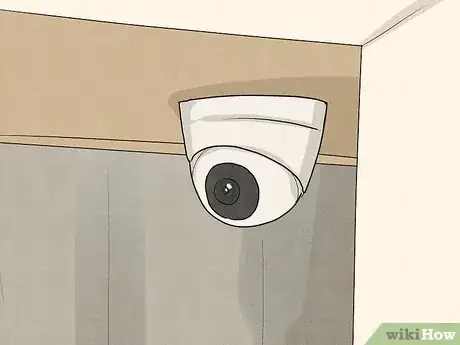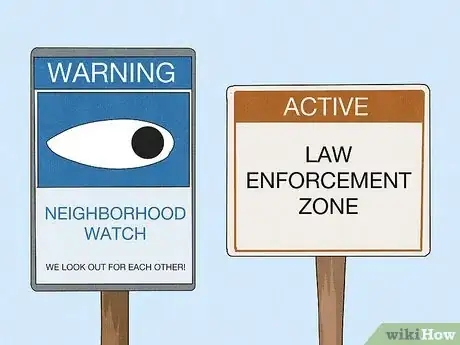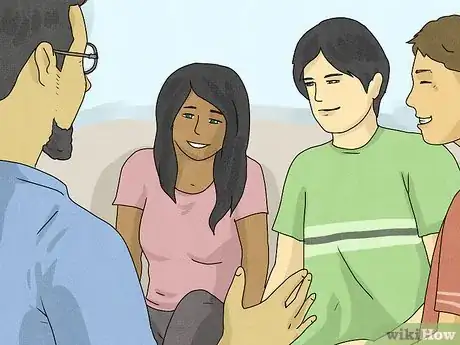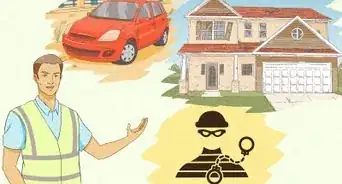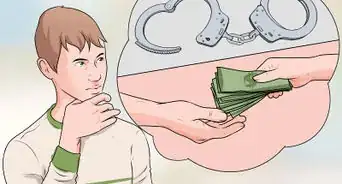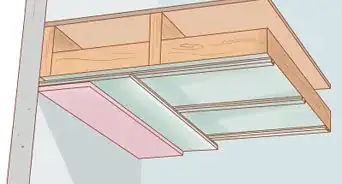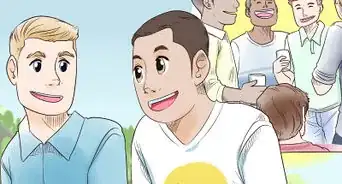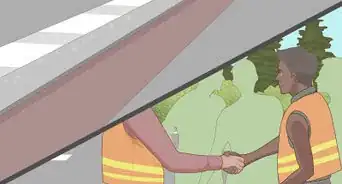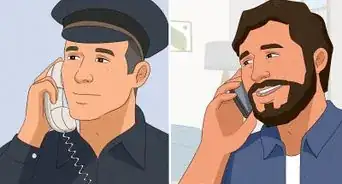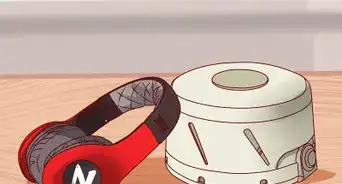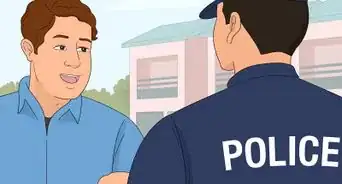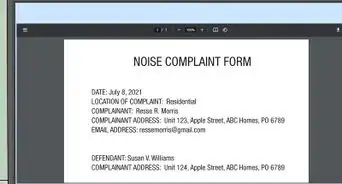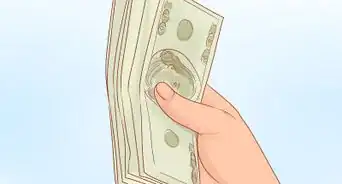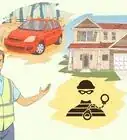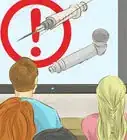This article was co-authored by Saul Jaeger, MS and by wikiHow staff writer, Eric McClure. Saul Jaeger is a Police Officer and Captain of the Mountain View, California Police Department (MVPD). Saul has over 17 years of experience as a patrol officer, field training officer, traffic officer, detective, hostage negotiator, and as the traffic unit’s sergeant and Public Information Officer for the MVPD. At the MVPD, in addition to commanding the Field Operations Division, Saul has also led the Communications Center (dispatch) and the Crisis Negotiation Team. He earned an MS in Emergency Services Management from the California State University, Long Beach in 2008 and a BS in Administration of Justice from the University of Phoenix in 2006. He also earned a Corporate Innovation LEAD Certificate from the Stanford University Graduate School of Business in 2018.
There are 19 references cited in this article, which can be found at the bottom of the page.
wikiHow marks an article as reader-approved once it receives enough positive feedback. In this case, several readers have written to tell us that this article was helpful to them, earning it our reader-approved status.
This article has been viewed 280,087 times.
There are plenty of easy steps that you can take to help make your community a better place. By building a relationship with your neighbors and your local police department, you’ll raise awareness and make it easier to enact change in your area. Just remember, you are not going to find success if you go out trying to fight crime yourself. The goal here is to build your community up to make it less welcoming for criminals, not to confront strangers or call the police every time you see something vaguely suspicious.
Steps
Expert Q&A
-
QuestionWhat is a good crime prevention strategy?
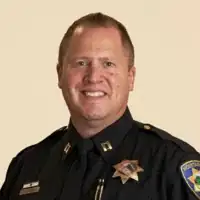 Saul Jaeger, MSSaul Jaeger is a Police Officer and Captain of the Mountain View, California Police Department (MVPD). Saul has over 17 years of experience as a patrol officer, field training officer, traffic officer, detective, hostage negotiator, and as the traffic unit’s sergeant and Public Information Officer for the MVPD. At the MVPD, in addition to commanding the Field Operations Division, Saul has also led the Communications Center (dispatch) and the Crisis Negotiation Team. He earned an MS in Emergency Services Management from the California State University, Long Beach in 2008 and a BS in Administration of Justice from the University of Phoenix in 2006. He also earned a Corporate Innovation LEAD Certificate from the Stanford University Graduate School of Business in 2018.
Saul Jaeger, MSSaul Jaeger is a Police Officer and Captain of the Mountain View, California Police Department (MVPD). Saul has over 17 years of experience as a patrol officer, field training officer, traffic officer, detective, hostage negotiator, and as the traffic unit’s sergeant and Public Information Officer for the MVPD. At the MVPD, in addition to commanding the Field Operations Division, Saul has also led the Communications Center (dispatch) and the Crisis Negotiation Team. He earned an MS in Emergency Services Management from the California State University, Long Beach in 2008 and a BS in Administration of Justice from the University of Phoenix in 2006. He also earned a Corporate Innovation LEAD Certificate from the Stanford University Graduate School of Business in 2018.
Public Safety Advisor At outreach events, you can ask questions about the issues facing your neighborhood, and urge the police to do more in your area.
At outreach events, you can ask questions about the issues facing your neighborhood, and urge the police to do more in your area.
Warnings
- Don’t confront the subject if you see them actively committing a crime. You could be putting yourself in harm’s way if you do this. Just call emergency services and let the professionals handle the problem.[21]⧼thumbs_response⧽
- Be mindful and self-reflective before you call the cops on someone. When you call, report what you see and what they appear to be doing, not a speculation that can not be reasonably ascertained by observations. Racial profiling has been a huge problem when it comes to crime-prevention programs and neighborhood watch groups, so make sure you’re doing the right thing before you hit the send button to call the police. Somebody being a specific race is not a reason for you to be suspicious.[22]⧼thumbs_response⧽
References
- ↑ Saul Jaeger, MS. Police Captain, Mountain View Police Department. Expert Interview. 21 February 2020.
- ↑ https://www.chicagotribune.com/news/ct-xpm-2009-10-20-0910200161-story.html
- ↑ https://bja.ojp.gov/sites/g/files/xyckuh186/files/Publications/NSA_NW_Manual.pdf
- ↑ https://www.wbez.org/stories/does-new-neighborhood-watch-reduce-crime-or-create-resident-cops/6e96cf86-2f15-44a9-ad82-fd5cbd4451aa
- ↑ https://www.eastvalleytribune.com/local/the_valley/ahwatukee/getting-to-know-your-local-police-officers-will-be-as-easy-as-riding-a-bike/article_4eb7ecbb-8466-54a7-ad22-a48f9039991c.html
- ↑ https://www.fitchburgwi.gov/906/Crime-Prevention-Tips-Resources
- ↑ https://portal.311.nyc.gov/article/?kanumber=KA-02295
- ↑ Saul Jaeger, MS. Police Captain, Mountain View Police Department. Expert Interview. 21 February 2020.
- ↑ https://www.abc.net.au/news/2017-12-06/tips-for-contacting-local-politicians/9226664
- ↑ https://www.urban.org/urban-wire/can-tearing-down-vacant-house-make-your-neighborhood-safer
- ↑ https://www.ncjrs.gov/pdffiles1/nij/186049.pdf
- ↑ https://news.uchicago.edu/story/role-physical-environment-broken-windows-theory
- ↑ https://www.npr.org/2016/11/01/500104506/broken-windows-policing-and-the-origins-of-stop-and-frisk-and-how-it-went-wrong
- ↑ Saul Jaeger, MS. Police Captain, Mountain View Police Department. Expert Interview. 21 February 2020.
- ↑ Saul Jaeger, MS. Police Captain, Mountain View Police Department. Expert Interview. 21 February 2020.
- ↑ https://ravallirepublic.com/news/article_a47a6181-1258-56ec-99bc-158743b65c7a.amp.html
- ↑ https://www.bloomberg.com/news/articles/2016-04-13/adding-green-space-in-cities-can-reduce-crime-research-suggests
- ↑ https://www.useful-community-development.org/cleaning-up-your-neighborhood-park.html
- ↑ https://dera.ioe.ac.uk/17550/1/a3814uab.pdf
- ↑ https://www.apa.org/monitor/julaug03/youth
- ↑ https://www.wbrc.com/video/2019/11/15/police-dont-confront-alleged-criminals/
- ↑ https://www.miamiherald.com/news/nation-world/national/article134466599.html
About This Article
To reduce crime in your neighborhood, get to know the usual happenings so you’re more likely to notice if something’s wrong. Remember to stay up-to-date on criminal activity in your area, and form a neighborhood watch so you and your neighbors can keep each other informed about any suspicious activity in the area. Finally, occupy high-crime areas en masse with your neighbors when you can to help push criminal activity out! Keep reading for tips on how celebrating together as a community can make for a stronger neighborhood!
